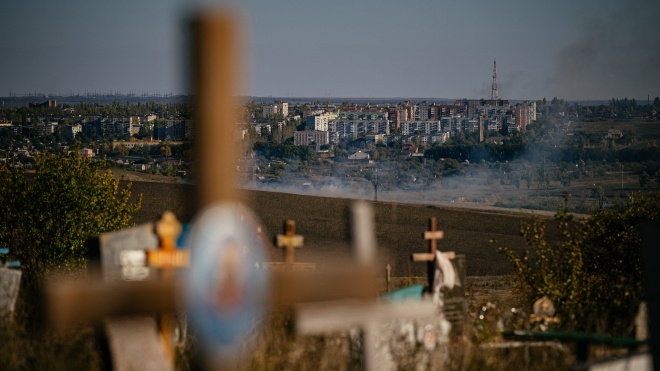The New York Times published an article about three women who became victims of the Russian genocide in Bucha. Lyudmyla Shcheglova, Oksana Sulyma, and Anna Noga are three of the hundreds of victims of the occupiers who died this spring in a city whose name the whole world now knows because of mass atrocities by Russian soldiers. The newspaperʼs reporters returned to Bucha to learn more about the three women and tell the stories of their deaths and lives. They had very different destinies: 34-year-old Oksana lived in Kyiv and came to Bucha to visit friends, 36-year-old Anna lived in Bucha all her life, and 81-year-old Lyudmila, Russian by birth, moved to Bucha as a pensioner. Oksana was killed on March 17: she was found in a potato cellar, shot in the head, wearing only a fur coat. There is evidence that she was raped. Anna was imprisoned when she was taking out the garbage. Neighbors say that she shouted “Glory to Ukraine!” with a bag on her head. A week later, her neighbor found the body. The face was unrecognizable ― it was so badly beaten. Annaʼs eye was shot. Ludmila Shcheglova was found hanging from a tree a few days after the retreat of the Russians from Bucha. Although the police registered this case as a suicide, Lyudmilaʼs relatives and neighbors do not believe in it. The day before, the neighbor heard Shcheglova arguing with someone and saw a strange man in the yard.
Uri Friedman, author of The Atlantic, spoke with several experts about exactly how Russiaʼs preparations for using nuclear weapons against Ukraine are being monitored. Friedman has been writing about nuclear threats for many years and knows how important it is to distinguish the signs of a threat from empty threats. The experts Friedman spoke with offer their thoughts on the steps that could mean further development of the nuclear threat. First of all, there are specific nuclear threats from the Kremlin: at the moment, Putin talks about the use of nuclear weapons very smoothly. Secondly, the final defeat of Russian troops and, as a result, a threat to Putinʼs power at home could be an alarm bell. Matthew Kroenig, who worked for the US Department of Defense, believes that Putin may resort to a nuclear strike as a last chance to change the course of the war and retain power. Thus, investments in aid to Ukraine simultaneously help end the war and increase the risk of nuclear escalation, which is one of the main paradoxes of this war, Friedman writes. The third sign is the removal of Russian tactical nuclear weapons from storage. There are still about 2,000 units of tactical nuclear weapons in about 47 storage facilities across Russia, and the launch systems are hidden elsewhere. Thanks to satellites and ground intelligence, the US will likely be able to learn that Russia is removing warheads from storage. In addition, some experts say that Putin himself will want to show the preparation process in order to increase the threat, prove that he is not bluffing and make sure that there are no consequences of such a decision. Fourth, intercepted data (information or conversations) indicating preparations for the use of nuclear weapons will testify to the seriousness of the threat. If Russia were preparing a nuke, there would be traces, because tens of thousands of Russian soldiers must be involved in preparing the logistics of a nuclear attack. Although the United States and its allies still believe that there are no clear signs of Russian intentions to use nuclear weapons, writes Friedman, the very fact that Putin is losing the war is an alarm bell that moves the world into a "danger zone."
Deputy editor-in-chief of The Guardian, Simon Tisdall, calls on the West to expel Russian diplomats and recall their own from Moscow. Diplomatic steps towards the Russian Federation are not working, the publication writes ― it is only worth mentioning the numerous phone conversations between French President Macron and Putin or the vote at the UN. Despite the anti-war consensus of three quarters of the worldʼs countries, rockets are still falling on Ukrainian cities and there are no signs of the Kremlinʼs readiness to end the war. The reason is simple, writes Tisdall: Putin doesnʼt want it. Therefore, Russian diplomats only cover up terrorism and mass murders. It is time to admit that diplomacy has failed, Tisdall believes, to recall Western diplomats from Moscow, and to ostracize Russian officials on international platforms. All Russian diplomats should be expelled, writes the author. They only spread propaganda and help the saboteurs and spies that swarm the Russian embassies. Complete diplomatic isolation would be humiliating for Putin and could also damage his relations with India and China. In the end, writes Tisdall, Putinʼs regime will surely fall, but we will definitely not owe it to diplomacy.
